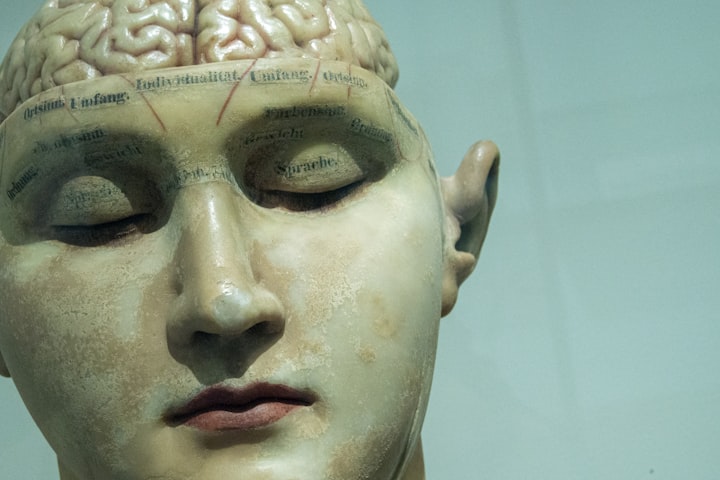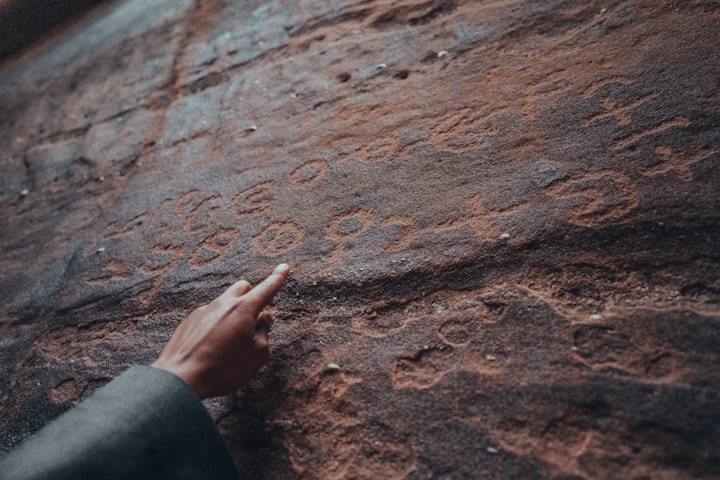
The cabin in the woods had been abandoned for years, but one night, a candle burned in the window. Nil happened upon the ghastly scene, on what would prove to be a most unfortunate nocturne, as he searched for warmth amidst the late-winter chill. It was not his intention to perish, alone or with company, in his native village, for he and the other young men had a duty to perform abroad, as the Eighteenth Century dawned.
Frail indeed was the hope Nil experienced, once he had taken stock of his unhappy circumstances. The purpose of his visit to the forest encroaching their village was to better prepare himself for unexpected circumstances, once in the battlefield of northwestern Europe. Leading them on a days-long training exercise in the encroaching woods, Fedir demanded strict attention to his directives, expecting them to work together to form a stronger collective, capable of opposing any equivalent force of men.
Now, as he clamped his jaws shut to muffle the pained sounds issuing from his throat, Nil, who had endured nineteen harsh Ukrainian winters without more than a fleeting skin break, now attempted to cope with the reality of a badly sprained ankle. It was no source of pride and joy for the aspiring foot soldier to have been brought low by a simple misstep, a few minutes' ride from his village, rather than during the military excursion, in another land, for which he was training on that evening. It would not bring honor to his family if he were the supper of a wolf, or a bear, rather than the defeated foe of a Swede.
Fedir had explained their mission to the junior members of their band of peasant soldiery, with characteristic fatalistic wit—"Our good friend, Pyotr Alekséyevich, requires our unique talents, our distinguished service, to his glorious cause against that Swedish upstart. Seems that once upon a time, last autumn, said Swede, who was not at all a proper gentleman, thought very little of Pyotr's claim over Narva, and decided to fight him for it.
"This would be of little consequence, to us 'mere tillers of the soil', except that the wrong man won, and now, Pyotr wants what all men want, another chance to get it right. Take the calendar. We in know that January began on a Saturday, but these Swedes, led by their impetuous king Charles, prefer to believe that the whole thing started on a Tuesday. Seems that we've got to put things right with those heathens—starting with their childish notions about keeping proper time! No wonder we're at war with them." This last bit provoked some begrudging laughter from his attentive, worried troops.
At Fedir's table, Nil sat with the other circumspect youths of their ad-hoc squad. Trokhym, the tallest and most muscular, had a piercing gaze that could intimidate, even when he was calm and unruffled. It had been his recommendation to Fedir that had brought Yevhen, the oldest of Fedir's recruits, into their fold; he always seemed the wise one of their modest cadre, always trying to improve his education, increase his station in the world, a frail hope, he conceded.
It was a social occasion, at which youthful conscripts, on the eve of war, celebrated the end of their "good fortune" of being starving peasants to, again in Fedir's words, "glory in becoming starving foot-soldiers." Fedir called upon a serving maid to refresh his cup of vodka, chilled almost the point of freezing both the drink and the drinker. He paid no attention to the maiden pouring his numbingly cold drink, but Nil had noticed her, most certainly, that night.
Inna was seventeen, Sofron's sister, and she had a glimmer of light that penetrated the cloud of concern that hung over her. Like her brother, she worked hard and expected very little, but unlike Sofron, who was the man of their household since their father had died, Inna could laugh at, and even tell, a good joke, and those were hard to find in 1701, regardless of when it had begun. Nil could not grasp the double meanings behind some of her taunts, and never seemed to looking at her when she would flash a hint of a smile, but he sensed that something intriguing danced between them. It would be her face that he pictured, during the terror that soon commenced to seize his heart.
^^^^
In Yevhen's home, Nil had seen a lubok, a wooden-block print of a painted image that had amused him. It showed depicting a shawled, skinny-legged old woman who seemed to be readying herself to do battle with a crocodile, one of those giant reptiles; Nil's village had never seen one anywhere else but on a lubok. He remarked that the old woman while mad, possessed an undeniable courage, battling this leathery beast. Yevhen's glum correction startled him: "That's no old woman. That's Baba Yaga."
Fedir had warned his men, "You must be able to fend for yourselves," no matter their situation, because of the dizzying disarray that conditions on the battlefield were sure to incite. Now, as he dragged himself up a slight hill, Nil regretted having taken this advice so lightly before. It was to push back against the needling he had been absorbing, from Trokhym, with the implicit approval of Fedir, that Nil had claimed falsely to possession of a placid attitude. Trokhym had wanted to make it very clear that Inna had captured his eye first, and thus, was his prize to win. How had he known that Nil was even interested in her, when he had confided his feelings for her to nobody?
If he had known the French word, mirage, he might have applied it to this phantasm: a flickering orange light, framed in a cabin's window. Of course Nil knew of this place; it had been known for some time, most of his life, in fact, that this was an abandoned structure. Abandoned by sensible persons, perhaps, but someone was making use of this place. Candles did not light themselves, through conventional means, Nil held; but how else to explain this phenomenon in action, as the glow of the candle wick flickered before his filmy eyes?
Unless... the possible alternate explanation was too much for him to bear, it was much too risible. It would mean that his predicament had combined to remove his wits. Common persons had avoided these woods for many years in order to avoid rabid animals, frostbite in winter weather, and other real menaces to their health, but not only the ones they could see and hear and touch. Superstition played its role, too. Her name meant many things to the rabble: Disease, devourment, engulfment. Madness of a killing kind could be expected to arise from dealings with her, provided one did not become the victim instead.
Yevhen's parents, Nil recalled, were Old Believers, who had disregarded the reforms that Patriarch Nikon had brought to the Eastern Orthodox Church. Now, in a cruel twist, Pyotr Alekséyevich himself had decreed that all Old Ritualists must pay extra taxes, including one of their beards, as a penalty for their reluctance to move with the times. How did Yevhen hope to bridge this gulf between the "Great" man and his own family? How many Swedes must he slay in glorious battle, before—
Pain snaked up his leg, causing him to cry out. He was grateful that Fedir and the other conscripts had abandoned him, but only for the moment, as it meant they would not belittle him for this weakness. He shook his head to clear it, and hugged himself, to keep warm; he was not successful in this endeavor. His eyes snapped open, at the sound of animal jaws opening, and animal growls rising in a predator's throat. It was nearby.
He could not hope to flee. His end seemed a mere formality now. He was shivering, injured, alone and bewildered. His cheeks burned from the cold. His breathing was rapid, yet shallow; he could not get enough air to satisfy himself, so he felt. He reached out to grasp something, to help him pull himself up, and felt the corner of shaved wood.
He was touching one side of the cabin. As he rolled over onto the knee of his uninjured leg, Nil reeled as the image of the illuminated window swam into his field of vision. Someone, at least he hoped it was someone, stood outlined by the light, yet otherwise sheathed in darkness. It was a short person, possibly a child. Or an old woman. Did she stand on bony legs—could she be Baba Yaga?
^^^^
He felt, rather than heard, the words spoken from within the house, if that was their source: "It is no reward, Nil Gavrilyuk, that you have collected, in coming here, but what a treasure you have brought me, perhaps? Stand up for me, let me get a good look at you."
Nil laughed, because it was all so absurd, that he should fall, quite literally, upon such hardship when there was no one for kilometers around to catch him. "Even if I wanted to," he croaked, "I have twisted my foot. I... cannot stand." Now, he thought, she is sure to devour me. I have left myself open to her savagery.
"So much the easier, then, for me, I should think," he "felt" the house say back. It was an elderly woman's voice, but not a woman who was speaking. Somehow, he knew that Bony-Leg could not be female, like his mother and the Virgin and Inna were women. Bony-Leg was not a person—she was an entity, a spirit, not of a benign inclination towards mere men, or so he had gathered from the few folk tales he had heard about her. "I would set quite a table for you," he thought he heard her say, but it must have been, "with you."
Nil heard a hard object, tapping against something else of equal hardness, and make a scraping sound that seemed to move, shifting its pitch as it did so. Stories mentioned that Bony-Leg flew in an enlarged mortar, and that she wielded a pestle, like a club. Could this be that very mechanism? Was she preparing to reduce him to some pulped potion, add him to the meal she fed some feral servant?
In this darkness, he nevertheless sensed that something had changed in the contours of the cabin. He realized when he looked away from the window: the cabin door had opened. Making no sound at all, it had introduced yet more hideous peril to his equation: now she could pounce upon him with ease, while he could do little more than twist in anguish on the porch. He was not going to make it easy for her. He was a peasant, but he was also a soldier. He would yet settle his account with some Swedish troopers, but first, he had to wriggle out of this monster's grasp.
"I bid you, welcome, Nil Gavrilyuk," the house, or the woman, or the, well, the spirit spoke again to him. "Unless, of course, you would rather I invite one of your comrades inside instead?"
"What do you mean?" Nil gasped, but as he rose to half his normal standing height, his head swam with fatigue, mixed with discomfort. He leaned into the doorway, and half-fell inside. Yelping with pain from his injured ankle, Nil cursed himself silently for his show of infantile distress. He awaited his oblivion.
A moment passed, then another. Was "she" toying with him? Torturing him with her infernal patience, savoring her victory over him? Or, worse, did she find the ease of his capture so disappointing that he had bored her? Could he not even salvage the dignity of dying after a struggle? Must he suffer the humiliation of having been little more than a morsel for this malignant outsider? "I won't let you win," Nil ground out, between his clenched teeth. "I am ready to do battle with you. I am a soldier, in the service of Pyotr Alekséyevich himself, Pyotr the Great."
"Not yet, tovarisch," came the impossible words from Yevhen's throat, a distance Nil could not measure away, but just outside of the cabin, he was sure. "I see you have chosen this cozy hideaway. You'll make a fine soldier, once you learn to give up these comforts. Wouldn't you agree, Trokhym?"
"I may have my misgivings," were words that could only have come from the imposing Trokhym, and for once, Nil was thrilled to hear his speaking with such disdain for him. "However, it is true that we are all fingers of a single hand, and if our pinky needs to warm himself by a fire, who are we to disapprove?"
Nil wanted to smile, though mustering laughter was still just outside of his reach. The woman, spoiling this flash of triumph, croaked, "I propose, Nil Gavrilyuk, a deal. Send one of them inside, to me. I would consider that a fair trade. You can do that? It matters very little to me, which of you pays me the courtesy of a visit. I offer this, because you have amused me. Now, please, decide."
Many thoughts swirled before Nil then: recollections of his mother and his father; his brothers; their sisters; his friends Fedir and Sofron and Sofron's sister Illa; Yevhen and Trokhym; Pyotr of Russia; Charles of Sweden; duty and honor, courage and sacrifice, loneliness and dread, despair and grief. Surely there could be no shame in making a hopeless charge against this creature, him and his fellow warriors, and hopeless it would surely be!
Nil did not know what he was going to say, and he only wanted to have to say it once...
© 2022 Eric Wolf.
About the Creator
Eric Wolf
Ink-slinger. Photo-grapher. Earth-ling. These are Stories of the Fantastic and the Mundane. Space, time, superheroes and shapeshifters. 'Wolf' thumbnail: https://unsplash.com/@marcojodoin.






Comments
There are no comments for this story
Be the first to respond and start the conversation.